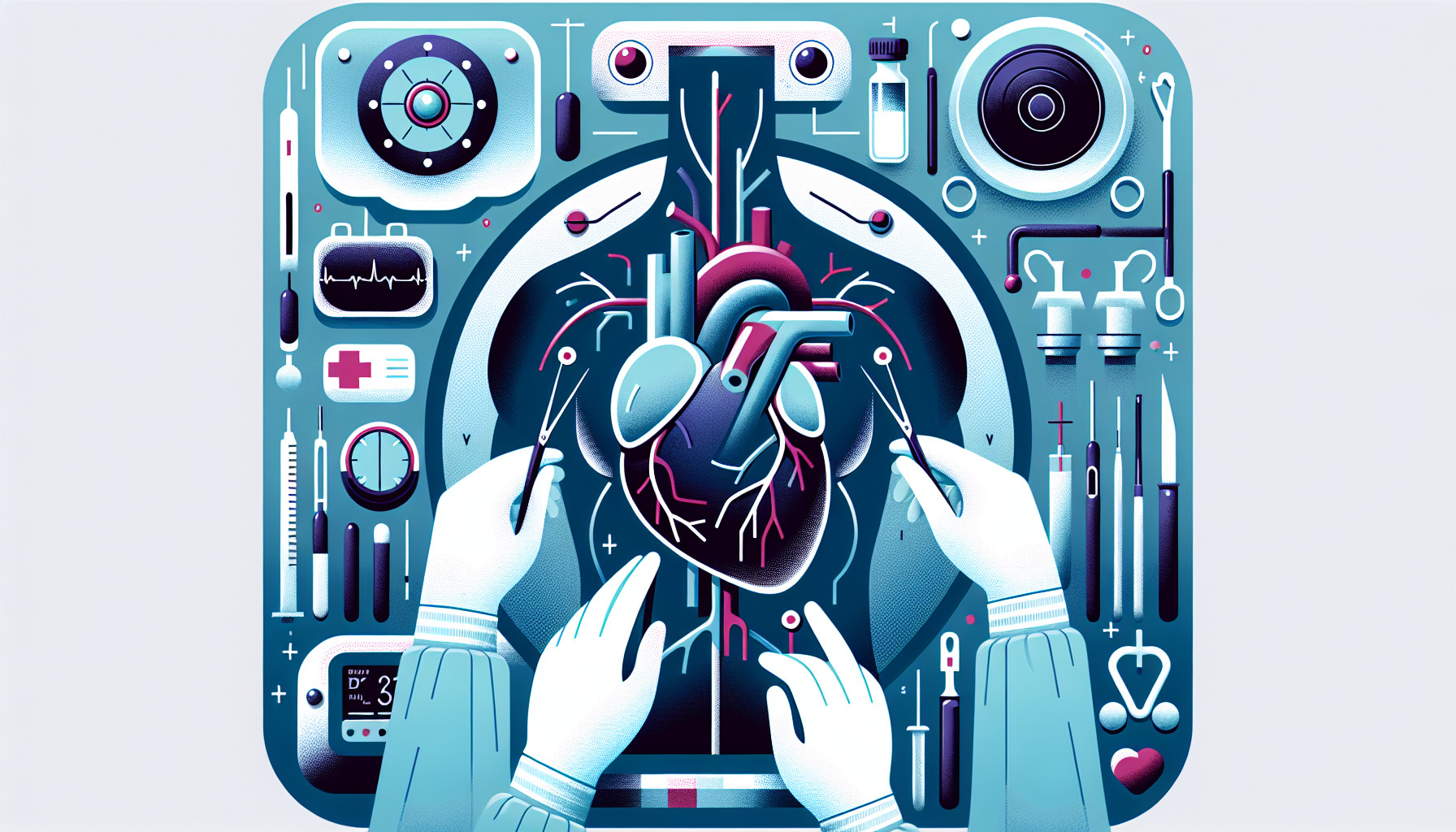Our Summary
This research paper discusses the importance of quality checks during or immediately after the coronary artery bypass graft (CABG) operation- a surgery that helps improve blood flow to the heart. The study highlights that these checks are not generally performed, though they could benefit patient outcomes. The interest in CABG quality assurance has grown recently, possibly due to its superiority over another procedure called percutaneous coronary intervention (PCI) for some patients, such as those with diabetes or a high SYNTAX score, which measures the complexity of coronary artery disease. The authors argue that for CABG to be seen as a good alternative to PCI, the rate of major adverse cardiac events during CABG must be similar to that of PCI, and this could be achieved by reducing technical errors through intra-operative assessments.
FAQs
- What is the importance of quality checks during or immediately after the coronary artery bypass graft (CABG) operation?
- How does CABG compare with percutaneous coronary intervention (PCI) in terms of effectiveness for certain patients?
- How can the rate of major adverse cardiac events during CABG be reduced to be similar to that of PCI?
Doctor’s Tip
A doctor might tell a patient undergoing coronary artery bypass surgery to make sure they follow all post-operative care instructions carefully, including taking medications as prescribed, attending follow-up appointments, and making necessary lifestyle changes such as adopting a heart-healthy diet and engaging in regular exercise. It is also important for the patient to report any symptoms or concerns to their healthcare provider promptly to ensure proper monitoring and management of their recovery.
Suitable For
Patients who are typically recommended for coronary artery bypass surgery include those with severe coronary artery disease, particularly those with multiple blockages or blockages in critical arteries. Patients who have not had success with other treatments, such as medication or lifestyle changes, may also be candidates for CABG. Additionally, patients with certain risk factors, such as diabetes or a high SYNTAX score, may benefit more from CABG compared to other treatments like PCI.
Overall, patients who are at high risk for complications from coronary artery disease and who have not had success with other treatment options are typically recommended for coronary artery bypass surgery.
Timeline
- Before CABG surgery:
- Patient will undergo various tests and evaluations to assess their heart health and determine the need for surgery.
- Patient will receive instructions on pre-operative care, such as fasting and medication adjustments.
- Patient will be scheduled for surgery and will meet with their surgical team to discuss the procedure and any concerns.
- During CABG surgery:
- The patient is put under general anesthesia and the surgical team begins the procedure by removing a healthy blood vessel from another part of the body (usually the leg or chest).
- The surgeon then attaches the healthy blood vessel to the blocked coronary artery to bypass the blockage and improve blood flow to the heart.
- The surgery typically takes several hours to complete.
- After CABG surgery:
- The patient is taken to a recovery room where they will be closely monitored for any complications.
- The patient will gradually be weaned off of the ventilator and other medical equipment as they regain consciousness.
- The patient will be encouraged to start moving and walking as soon as possible to prevent complications such as blood clots.
- The patient will receive instructions on post-operative care, including medications, wound care, and lifestyle changes to improve heart health.
- The patient will have follow-up appointments with their surgical team to monitor their progress and ensure proper healing.
What to Ask Your Doctor
- What are the risks and benefits of undergoing a coronary artery bypass graft (CABG) surgery?
- How long is the recovery process after CABG surgery and what can I expect during that time?
- Are there any specific lifestyle changes or medications I will need to take after the surgery?
- How often will I need to follow up with my doctor after the surgery?
- What signs or symptoms should I watch out for that may indicate a complication after the surgery?
- Will I need any additional tests or procedures before or after the surgery?
- What is the success rate of CABG surgery and what factors can influence the outcome?
- How experienced is the surgical team that will be performing the CABG surgery?
- Are there any alternative treatments or procedures that I should consider before deciding on CABG surgery?
- What measures are taken during the surgery to ensure the quality and success of the procedure, and how are complications managed if they arise?
Reference
Authors: Kieser TM. Journal: Curr Opin Cardiol. 2017 Nov;32(6):722-736. doi: 10.1097/HCO.0000000000000452. PMID: 28806185
